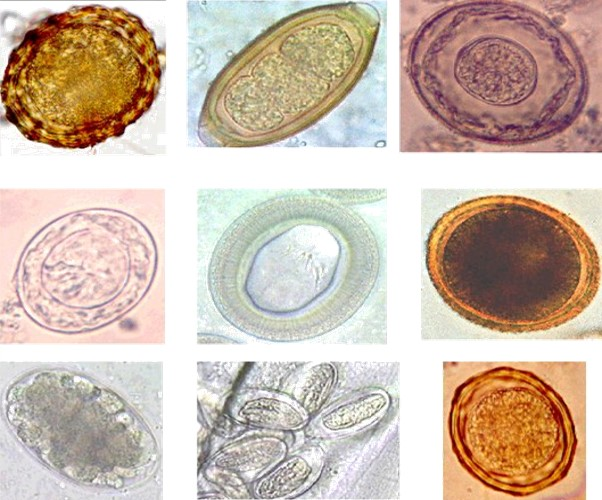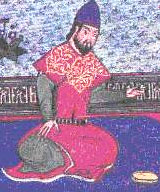|
Sharaf Al-Zaman Al-Marwazi
Sharaf al-Zamān Ṭāhir al-Marwazī or Marvazī ( ar, شرف الزمان طاهر المروزي; fl. 1056/57–1124/25 CE) was a physician and author of ''Nature of Animals'' ( '). He was a native of Merv, part of the Khorasan region in modern day Turkmenistan. ''Nature of Animals'' Al-Marwazī drew upon the works of Aristotle, Dioscorides, Galen, Oribasius, Timotheos of Gaza, Paul of Aegina, and the Muslim scholar Al-Jahiz. The work comprises five parts: * On human beings * On domestic and wild quadrupeds * On land and marine birds * On venomous creatures * On marine animals Physician Al-Marwazi served as physician at the courts of the Seljuk Sultan Malik-Shah I and his successors. As a physician, he recorded observations of parasitic worms Parasitic worms, also known as helminths, are large macroparasites; adults can generally be seen with the naked eye. Many are intestinal worms that are soil-transmitted and infect the gastrointestinal tract. Other parasitic worms ... [...More Info...] [...Related Items...] OR: [Wikipedia] [Google] [Baidu] |
Merv
Merv ( tk, Merw, ', مرو; fa, مرو, ''Marv''), also known as the Merve Oasis, formerly known as Alexandria ( grc-gre, Ἀλεξάνδρεια), Antiochia in Margiana ( grc-gre, Ἀντιόχεια ἡ ἐν τῇ Μαργιανῇ) and Marw al-Shāhijān, was a major Iranian city in Central Asia, on the historical Silk Road, near today's Mary, Turkmenistan. Human settlements on the site of Merv existed from the 3rd millennium BC until the 18th century AD. It changed hands repeatedly throughout history. Under the Achaemenid Empire, it was the centre of the satrapy of Margiana. It was subsequently ruled by the Ancient Macedonians, Parthians, Sasanians, Arabs, Ghaznavids, Seljuqs, Khwarazmians and Timurids, among others. Merv was the capital city of several polities throughout its history. In the beginning of the 9th century, Merv was the seat of the caliph al-Ma'mun and the capital of the entire Islamic caliphate. It served later as the seat of ... [...More Info...] [...Related Items...] OR: [Wikipedia] [Google] [Baidu] |
Al-Jahiz
Abū ʿUthman ʿAmr ibn Baḥr al-Kinānī al-Baṣrī ( ar, أبو عثمان عمرو بن بحر الكناني البصري), commonly known as al-Jāḥiẓ ( ar, links=no, الجاحظ, ''The Bug Eyed'', born 776 – died December 868/January 869) was a prose writer and author of works of literature, theology, zoology, and politico-religious polemics. He described himself as a member of the Arabian tribe Banu Kinanah. A thousand years before Darwin, Al-Jahiz came to the conclusion that there must be some mechanisms that influence the evolution of animals. He writes about three main mechanisms; the struggle for existence, the transformation of species into each other, and the environmental factors. He is therefore credited with outlining the principles of natural selection. Ibn al-Nadim lists nearly 140 titles attributed to Al-Jahiz, of which 75 are extant. The best known are ''Kitāb al-Ḥayawān'' (The book of Animals), a seven-part compendium on an array of subjects w ... [...More Info...] [...Related Items...] OR: [Wikipedia] [Google] [Baidu] |
11th-century Iranian Physicians
The 11th century is the period from 1001 ( MI) through 1100 ( MC) in accordance with the Julian calendar, and the 1st century of the 2nd millennium. In the history of Europe, this period is considered the early part of the High Middle Ages. There was, after a brief ascendancy, a sudden decline of Byzantine power and a rise of Norman domination over much of Europe, along with the prominent role in Europe of notably influential popes. Christendom experienced a formal schism in this century which had been developing over previous centuries between the Latin West and Byzantine East, causing a split in its two largest denominations to this day: Roman Catholicism and Eastern Orthodoxy. In Song dynasty China and the classical Islamic world, this century marked the high point for both classical Chinese civilization, science and technology, and classical Islamic science, philosophy, technology and literature. Rival political factions at the Song dynasty court created strife amongst th ... [...More Info...] [...Related Items...] OR: [Wikipedia] [Google] [Baidu] |
Zoologists Of The Medieval Islamic World
This is a list of notable zoologists who have published names of new taxa under the International Code of Zoological Nomenclature. A * Abe – Tokiharu Abe (1911–1996) * Abeille de Perrin, Ab. – Elzéar Abeille de Perrin (1843–1910) * Able – Kenneth W. Able (born 1945) * Abbott, C.C. Abbott – Charles Conrad Abbott (1843–1919) general zoology * C. Abbott – Charles Abbot (1761–1817) entomology * J. Abbott – John Abbot (1751–1841) entomology, ornithology * W. Abbott, Abbott – William Louis Abbott (1860–1936) mainly ornithology * Acerbi – Giuseppe Acerbi (1773–1846) * Acero – Arturo Acero Pizarro (born 1954) * Adams, Ad. – Charles Baker Adams (1814–1853) malacology * A. Adams – Arthur Adams (1820–1878) mostly marine animals * A.L. Adams – Andrew Leith Adams (1827–1882) vertebrate paleontology * D.B. Adams – Daniel B. Adams (fl. 1979) paleontology * E. Adams – Edward Adams (1824–1856) * H. Adams – Henry Adams (1813–1877) malac ... [...More Info...] [...Related Items...] OR: [Wikipedia] [Google] [Baidu] |
People From Merv
A person ( : people) is a being that has certain capacities or attributes such as reason, morality, consciousness or self-consciousness, and being a part of a culturally established form of social relations such as kinship, ownership of property, or legal responsibility. The defining features of personhood and, consequently, what makes a person count as a person, differ widely among cultures and contexts. In addition to the question of personhood, of what makes a being count as a person to begin with, there are further questions about personal identity and self: both about what makes any particular person that particular person instead of another, and about what makes a person at one time the same person as they were or will be at another time despite any intervening changes. The plural form "people" is often used to refer to an entire nation or ethnic group (as in "a people"), and this was the original meaning of the word; it subsequently acquired its use as a plural form of per ... [...More Info...] [...Related Items...] OR: [Wikipedia] [Google] [Baidu] |
University Of California Press
The University of California Press, otherwise known as UC Press, is a publishing house associated with the University of California that engages in academic publishing. It was founded in 1893 to publish scholarly and scientific works by faculty of the University of California, established 25 years earlier in 1868, and has been officially headquartered at the university's flagship campus in Berkeley, California, since its inception. As the non-profit publishing arm of the University of California system, the UC Press is fully subsidized by the university and the State of California. A third of its authors are faculty members of the university. The press publishes over 250 new books and almost four dozen multi-issue journals annually, in the humanities, social sciences, and natural sciences, and maintains approximately 4,000 book titles in print. It is also the digital publisher of Collabra and Luminos open access (OA) initiatives. The University of California Press publishes in ... [...More Info...] [...Related Items...] OR: [Wikipedia] [Google] [Baidu] |
Parasitic Worms
Parasitic worms, also known as helminths, are large macroparasites; adults can generally be seen with the naked eye. Many are intestinal worms that are soil-transmitted and infect the gastrointestinal tract. Other parasitic worms such as schistosomes reside in blood vessels. Some parasitic worms, including leeches and monogeneans, are ectoparasites thus, they are not classified as helminths, which are endoparasites. Parasitic worms live in and feed in living hosts. They receive nourishment and protection while disrupting their hosts' ability to absorb nutrients. This can cause weakness and disease in the host, and poses a global health and economic problem. Parasitic worms cannot reproduce entirely within their host's body; they have a life cycle that includes some stages that need to take place outside of the host. Helminths are able to survive in their mammalian hosts for many years due to their ability to manipulate the host's immune response by secreting immunomodulatory ... [...More Info...] [...Related Items...] OR: [Wikipedia] [Google] [Baidu] |
Malik-Shah I
Jalāl al-Dawla Mu'izz al-Dunyā Wa'l-Din Abu'l-Fatḥ ibn Alp Arslān (8 August 1055 – 19 November 1092, full name: fa, ), better known by his regnal name of Malik-Shah I ( fa, ), was the third sultan of the Great Seljuk Empire from 1072 to 1092, under whom the sultanate reached its zenith of power and influence. During his youth, he spent his time participating in the campaigns of his father Alp Arslan, along with the latters vizier Nizam al-Mulk. During one of such campaigns in 1072, Alp Arslan was fatally wounded and died only a few days later. After that, Malik-Shah was crowned as the new sultan of the empire, but the succession was contested by his uncle Qavurt. Although Malik-Shah was the nominal head of the Seljuk state, Nizam al-Mulk held near absolute power during his reign. Malik-Shah spent the rest of his reign waging war against the Karakhanids on the eastern side, and establishing order in the Caucasus. Malik-Shah's death to this day remains under dispute; acco ... [...More Info...] [...Related Items...] OR: [Wikipedia] [Google] [Baidu] |
Paul Of Aegina
Paul of Aegina or Paulus Aegineta ( el, Παῦλος Αἰγινήτης; Aegina, ) was a 7th-century Byzantine Greek physician best known for writing the medical encyclopedia ''Medical Compendium in Seven Books.'' He is considered the “Father of Early Medical Writing”. For many years in the Byzantine Empire, his works contained the sum of all Western medical knowledge and was unrivaled in its accuracy and completeness. Life Nothing is known about his life, except that he was born in the island of Aegina, and that he travelled a good deal, visiting, among other places, Alexandria. He is sometimes called ''Iatrosophistes'' and ''Periodeutes'', a word which probably means a physician who travelled from place to place in the exercise of his profession. The exact time when he lived is not known; but, as he quotes Alexander of Tralles, and is himself quoted by Yahya ibn Sarafyun (''Serapion the Elder''), it is probable that Abu-al-Faraj is correct in placing him in the latter half ... [...More Info...] [...Related Items...] OR: [Wikipedia] [Google] [Baidu] |
Greater Khorasan
Greater Khorāsān,Dabeersiaghi, Commentary on Safarnâma-e Nâsir Khusraw, 6th Ed. Tehran, Zavvâr: 1375 (Solar Hijri Calendar) 235–236 or Khorāsān ( pal, Xwarāsān; fa, خراسان ), is a historical eastern region in the Iranian Plateau between Western and Central Asia. The name ''Khorāsān'' is Persian and means "where the sun arrives from" or "the Eastern Province".Sykes, M. (1914). "Khorasan: The Eastern Province of Persia". ''Journal of the Royal Society of Arts'', 62(3196), 279-286.A compound of ''khwar'' (meaning "sun") and ''āsān'' (from ''āyān'', literally meaning "to come" or "coming" or "about to come"). Thus the name ''Khorasan'' (or ''Khorāyān'' ) means "sunrise", viz. " Orient, East"Humbach, Helmut, and Djelani Davari, "Nāmé Xorāsān", Johannes Gutenberg-Universität Mainz; Persian translation by Djelani Davari, published in Iranian Languages Studies Website. MacKenzie, D. (1971). ''A Concise Pahlavi Dictionary'' (p. 95). London: Oxford University ... [...More Info...] [...Related Items...] OR: [Wikipedia] [Google] [Baidu] |
Timotheos Of Gaza
Timotheus of Gaza ( el, Τιμόθεος ὁ Γαζαῖος), sometimes referred to as Timothy of Gaza, was a Greek grammarian active during the reign of Anastasius, i.e. 491–518. He is the author of a book on animals which may have been one of the sources of the Arabic ''Nu'ut al-Hayawan''. He also wrote a work in four volumes titled ''Indian Animals or Quadrupeds and Their Innately Wonderful Qualities or Stories about Animals'' that survives only in an 11th-century prose summary. This prose summary was a very popular school text, and includes accounts of the giraffe, tiger, and other animals. References 5th-century Byzantine people 6th-century Byzantine people Ancient Greek grammarians 5th-century scholars 6th-century scholars 5th-century Byzantine writers 6th-century Byzantine writers {{AncientGreece-writer-stub ... [...More Info...] [...Related Items...] OR: [Wikipedia] [Google] [Baidu] |
Oribasius
Oribasius or Oreibasius ( el, Ὀρειβάσιος; c. 320 – 403) was a Greek medical writer and the personal physician of the Roman emperor Julian. He studied at Alexandria under physician Zeno of Cyprus before joining Julian's retinue. He was involved in Julian's coronation in 361, and remained with the emperor until Julian's death in 363. In the wake of this event, Oribasius was banished to foreign courts for a time, but was later recalled by the emperor Valens. Works Oribasius's major works, written at the behest of Julian, are two collections of excerpts from the writings of earlier medical scholars, a collection of excerpts from Galen and the ''Medical Collections'' (Ἰατρικαὶ Συναγωγαί, ''Iatrikai Synagogai''; Latin: ''Collectiones medicae''), a massive compilation of excerpts from other medical writers of the ancient world. The first of these works is entirely lost, and only 25 of the 70 (or 72) books of the ''Collectiones'' survive. This work pres ... [...More Info...] [...Related Items...] OR: [Wikipedia] [Google] [Baidu] |
.jpg)

_1938.jpg)




